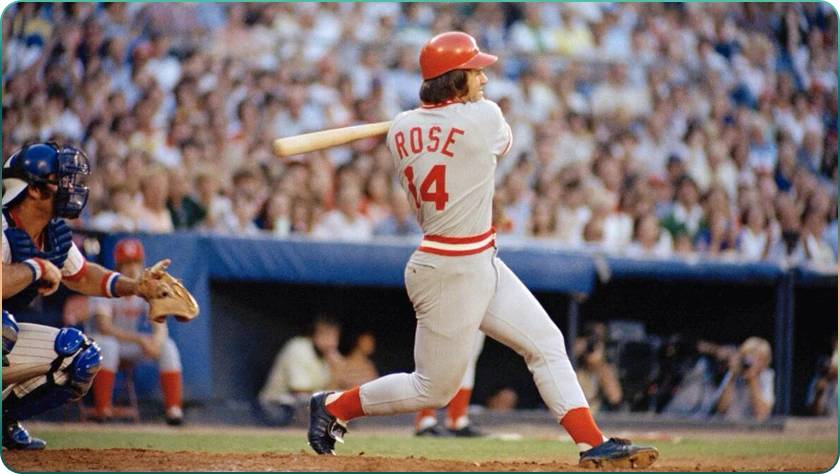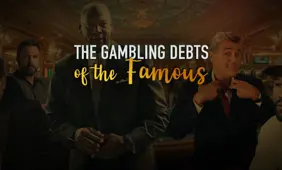The Dark Side of Sports – Betting Scandals That Shook the World

Brazil might be the greatest footballing nation in history, with more World Cup wins to its name than any other country, but right now it’s in borderline crisis mode. Thiago Silva has retired. Neymar has gone from being one of the top three players in the world to not even being the best player in the Saudi Pro League. And two members of the national team squad are embroiled in a betting scandal.
Having first made headlines in May, a spot-fixing case involving West Ham United’s Lucas Paquetá has resurfaced in Brazil just before an international break. The English FA charged Paquetá in 2024 with violating betting regulations, accusing him of deliberately earning yellow cards in West Ham games between November 2022 and August 2023. The FA claims these actions were meant to influence betting markets for financial gain, although Paquetá denies any wrongdoing. No verdict date has been set.
The case primarily focuses on Paquetá, but another player, Luiz Henrique, was also linked due to suspicious betting activity. Henrique, then playing for Real Betis, was involved in unusually high bets on bookings in early 2023, but he is not under formal investigation. A Brazilian report from UOL revealed that two of Paquetá's relatives transferred large sums of money to Henrique earlier that year. Despite the controversy, both players were selected by Brazil’s coach for their World Cup qualifiers.
You’d think, with so much at stake, athletes would steer clear of gambling on the very sport that puts food on their tables. Yet, from football stars in Brazil to baseball legends in America, some have risked it all for a flutter. And while some betting scandals are infamous, others are downright bizarre.
Welcome to the murky world of sports betting scandals, where temptation has no borders, and the consequences can be career-ending.
The two implicated Brazilian footballers are not just any players; Paquetá, a key midfielder for the Seleção, has been central to Brazil's hopes in major international tournaments, and Henrique is one of the country’s rising stars. According to FIFA’s stringent rules, athletes are forbidden from betting on football in any capacity. The reasons are clear: the potential for match-fixing or insider knowledge that could distort the fairness of the game.
So if either player is found guilty, it will raise deafening alarms about the integrity of the sport. Both players could face multi-year bans from professional football, which not only impacts their club careers but also their prospects with the national team. For Brazil, this is particularly hard-hitting, as it threatens to destabilize a team that is still rebuilding from their 7-1 World Cup semi-final defeat to Germany in Belo Horizonte a decade ago.
But as shocking as this sports betting scandal is, it’s hardly the first time sports have been rocked by betting controversies.

The Black Sox in 1919: The Original Betting Scandal
In The Great Gatsby, F. Scott Fitzgerald’s narrator Nick Carraway eats lunch with a man he first believes to be a dentist. Sporting cufflinks made from human molars, Meyer Wolfsheim is then revealed to be “the man who fixed the 1919 World Series”. “The idea staggered me,” Carraway muses. “It never occurred to me that one man could start to play with the faith of fifty million people.”
If you trace the history of sports betting scandals back far enough, you’ll find yourself in the stands of the 1919 World Series, a moment forever etched in infamy. The Chicago White Sox were heavy favorites to win, but eight players conspired to intentionally lose in exchange for bribes from gamblers. Known as the "Black Sox Scandal," this incident shattered the public’s trust in the fairness of professional sports.
In reality, despite how Fitzgerald imagined it, there was far more than just one man involved. Key players like "Shoeless" Joe Jackson became the faces of this scandal (though even his level of involvement remains the subject of debate). Although many believed it to be the work of some proto-Al Capone gangster, the idea for the fix actually came from the players themselves, who were already used to betting on matches involving other teams.
First baseman Chick Gandil and pitcher Eddie Cicotte sought out gamblers, aiming to strike a low-risk, high-reward deal. They were inspired by rumors of a similar scheme allegedly involving the Chicago Cubs the previous year, when they lost the World Series to the Boston Red Sox.
What’s clear is that the scandal led to permanent bans for the players involved and fundamentally changed the landscape of baseball. It also led to the creation of the office of the Commissioner of Baseball, a position meant to restore integrity to the sport. This scandal set a precedent: sports betting was no longer just a fun sideline activity; it had the power to ruin careers, manipulate outcomes, and erode the trust of millions of fans.
The LA Dodgers Interpreter Scandal: Betting Goes Bizarre
While the Black Sox Scandal was a classic tale of greed and deception, fast forward to 2024, and we stumble upon a betting scandal that’s nothing short of bizarre. LA Dodgers pitcher Shohei “Shotime” Ohtani’s longtime interpreter, Ippei Mizuhara, was recently fired by the team following allegations of theft linked to illegal gambling. ESPN reported that approximately $4.5 million had been transferred from Ohtani’s bank account to a bookmaker, although Ohtani himself is not suspected of any involvement in the illegal activities.
Mizuhara admitted to ESPN that he had accrued significant gambling debts and had sought financial help from Ohtani, though he initially claimed the baseball star knew about the situation. The interpreter later retracted this statement, clarifying that Ohtani was unaware of the gambling debts or any money transfers. The case took a further turn when Ohtani’s lawyers accused Mizuhara of "massive theft" and indicated that they were referring the matter to authorities. Some reports are now saying the theft could be as much as $17 million.
Despite the ongoing controversy, Ohtani’s attention has not strayed from his baseball career, having recently made his season debut with the Dodgers following a historic $700 million contract (which is probably a pretty nice way of dealing with off-field turmoil). While this scandal in sports betting has drawn widespread attention, Dodgers manager Dave Roberts has emphasized that Ohtani's on-field performance will continue unaffected. Mizuhara, who has been by Ohtani's side since his MLB debut, now faces serious legal repercussions as the investigation unfolds.
Pete Rose: Baseball’s Eternal Outcast
Perhaps no sports figure is more synonymous with betting scandals than the late Pete Rose, who died just last month, aged 83. A three-time World Series winner and Major League Baseball’s all-time hits leader, Rose was one of the sport’s greats as a player, turning out for the Cincinnati Reds, the Phillies and (briefly) the Montreal Expos. He didn’t retire until 1986, but by then he was already managing the Reds, between 1984 and 1989. Then his reputation came crashing down.
In Rose’s final year of management, MLB Commissioner Angelo ‘Bart’ Giamatti questioned the coach after rumors began circling about him betting on baseball games. Rose admitted to betting on various sports, but denied that he’d ever placed a flutter on baseball. Meanwhile, Sports Illustrated published a detailed exposé of the allegations, giving the public their first word of the investigation. Lawyer John M Dowd was drafted in and The Dowd Report followed, exposing alleged bets that Rose had placed on Reds games, while manager, during 1985, ’86 and ’87. The report alleged that Rose had bet as much as $10,000 a day (although this figure has been disputed).
The report found no evidence that Rose had ever bet against his own team, but it didn’t matter. The findings proved that he had placed bets on games over which he, as Reds manager, had an influence. Although he maintained his innocence and even refused to appear at a hearing, Rose eventually accepted a place on baseball ineligibility list, meaning he could never appear in the sport’s Hall of Fame. Rose spent much of his remaining life appealing against the decision, campaigning for his inclusion among baseball’s immortals as one of its greatest ever players. Ultimately, he failed in doing so.
Having recently passed away, should one of the greatest players in baseball history be forgiven for his off-field indiscretions? Or is the integrity of the game too important to compromise?

Calciopoli or the Scandal That Changed Italian Football Forever
While betting scandals are often associated with individual players, sometimes entire leagues are implicated. Case in point: Italy’s "Calciopoli" scandal in 2006. This wasn’t just about players betting; it was about deep-rooted corruption at the highest levels of Italian football. Major clubs like Juventus, AC Milan, and Fiorentina were accused of influencing the selection of referees to ensure favorable outcomes for their teams.
Thirteen years ago, Juventus, one of Italy's most decorated football clubs, was shockingly relegated to Serie B and stripped of two Serie A league titles. Alongside other major clubs like AC Milan, Fiorentina, and Lazio, Juventus faced serious allegations that rocked Italian football to its core. At the centre of the controversy were wiretapped phone conversations between key football figures and refereeing officials, revealing alleged attempts to manipulate match outcomes in favour of certain teams.
The scandal unfolded like a plot from a crime film, with phone taps revealing conversations where high-profile football executives were said to pressure referees into favouring their clubs. These allegations only came to light by accident, as prosecutors were initially investigating separate claims of doping at Juventus. Luciano Moggi, Juventus’ general manager at the time, found himself at the heart of the scandal. Despite consistently denying any wrongdoing, Moggi’s involvement led to his resignation, along with that of FIGC (Italian Football Federation) president Franco Carraro and vice-president Innocenzo Mazzini.
One of the most striking stories that emerged from the scandal involved Moggi and Juventus chairman Antonio Giraudo allegedly locking referee Gianluca Paparesta and his assistants in a locker room following Juventus' 2-1 loss to Reggina in 2004. The officials were reportedly berated for not favouring Juventus during the match, though Moggi and Giraudo denied the claims. The wiretaps also revealed Moggi’s alleged attempts to influence the vice-chairman of UEFA’s referees' commission, as well as contacts with a government minister, Giuseppe Pisanu.
The fallout was seismic. Juventus were relegated, AC Milan, Lazio and Fiorentina were docked points, and numerous club officials and referees were banned from the sport. The scandal shook Italian football to its core, and though betting wasn’t the sole issue, several players — including Juventus goalkeeper and Italy legend Gianluigi Buffon — were investigated for gambling offences, albeit found to be innocent.
It was a dark day for Italian football. In the same year that the story broke, the Italian national team won the 2006 World Cup in Germany. But some fans were so outraged by the scandal that they refused to cheer for their country as they lifted the trophy. Juve won promotion back to Serie A after one season in the second tier, and their fans say the humiliation of Calciopoli served as motivation as they went on to win nine successive league titles in subsequent years. But the impact of the betting scandal on public perceptions of Italian football should not be underestimated.
Social Media’s Role in Modern Sports Betting Drama
As we move through the years, one thing becomes apparent: the scale of betting scandals has evolved in lockstep with technology. The rise of television first expanded the audience for sports, and with it, the potential for gambling. But the real game-changer has been the internet and social media.
Betting today is more accessible than ever. No longer confined to smoky bookie shops or whispered deals in back-alleys, it’s now just a click away on your smartphone. And with social media, rumors and sports scandals spread like wildfire. Paquetá and Henrique’s troubles are magnified tenfold by the global nature of today’s media landscape, where every action—every bet, every suspicious card—is scrutinized in real-time.
With platforms like Twitter, Instagram and TikTok, fans can voice their opinions instantly, and the pressure on athletes is immense. It’s not just about the consequences of getting caught; it’s about the court of public opinion. An athlete’s reputation can be destroyed overnight, and the fallout can last much longer than any ban.
Will Betting Scandals Ever Go Away?
As long as sports exist, the temptation of betting will be right there alongside it. For athletes, the draw of gambling can stem from a myriad of reasons—whether it’s boredom, a thrill-seeking personality, or the simple desire to make a quick buck. But with each new scandal comes the question: will we ever live in a world without them?
The short answer? Probably not. Technology will continue to evolve, and so too will the ways in which people gamble. While regulators are constantly trying to catch up, there will always be those willing to take the risk.
However, what might change is how betting scandals are handled. In the past, they often led to permanent bans or public disgrace. Today, with mental health becoming a more prominent discussion in sports, there’s a possibility that future scandals will be met with more rehabilitation efforts. Instead of banishing players forever, leagues might focus on education, support, and treatment to ensure that athletes can return to their sports with a renewed sense of purpose — as happened with former Brentford striker Ivan Toney, who received an eight-month ban for gambling (albeit never on his own team) last season, before returning to action in January.
A Temptation Too Great?
For better or worse, sports and betting have always been linked. From the Black Sox to Paquetá and Henrique, athletes and even entire leagues have been caught in the web of gambling scandals. The question is not whether these scandals will happen again, but how they’ll be handled when they inevitably do.
As fans, we want to believe in the purity of sport, that the outcomes we witness are fair, earned, and unsullied by corruption. But as long as there are high stakes, there will be temptation. Whether through tighter regulations, better education, or simply a changing culture within sports, the future will determine whether betting scandals remain a footnote in history—or the main headline.
In the meantime, for every goal scored, home run hit, or race won, there will always be a shadow lurking in the background, reminding us that sometimes, sport is not just about the game.





Review this Blog
Leave a Comment
User Comments
comments for The Dark Side of Sports – Betting Scandals That Shook the World